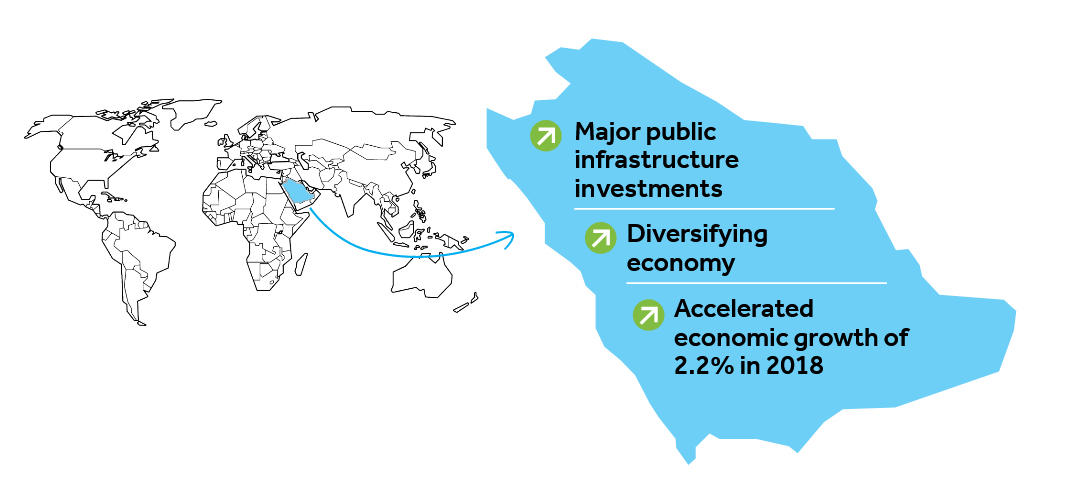
GCC Gulf Cooperation Council countries are witnessing accelerated economic growth buoyed by higher oil prices (compared to 2017) and eased fiscal consolidation which will spur domestic demand.
In 2017, the Saudi Government initiated major reforms to lessen the dependence on oil of the economy and increase the role of the private sector in line with Vision 2030. Fiscal consolidation measures including VAT were introduced.
The GDP is estimated to have grown by 2.2% in 2018 and is projected to grow by 1.8% in 2019 (2017: negative 0.9%), driven by higher oil prices, easing of production constraints and increased consumer spending. Non-oil GDP is also showing a healthy growth, and year on year growth in non-oil exports registered 26% in April 2018. VAT and other taxes have led to an increase in non-oil revenues. The fiscal position has also been improved by reduced fuel subsidies, and increased electricity tariffs. The budget deficit was 4.6% of GDP in 2018 and is forecast to further narrow to 4.2% in 2019.
Consumer price inflation of around 3% is forecast for 2018, consequent to the introduction of VAT and price increases but is expected to stabilise at around 2% in 2019. The current account surplus is expected to be around 10% of GDP in 2018, for which increased oil export revenue was a contributory factor. The adoption of Vision 2030 has brought several reforms in its wake such as improving the business environment, developing the SME sector, deepening capital markets, increasing participation of women in the economy and developing industries with high growth potential. The opening of the stock market to foreign investors and creation of a parallel market for the SME sector have been major milestones.
